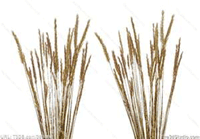 Barrier beaches and barrier dunes are among the most fragile and most highly protected resource systems in Massachusetts. These systems are fragile because they change location in response to storm events, which discourages establishment of stabilizing vegetation. These systems are valuable because they offer protection to important inland resource areas. The barrier dune system at Ballston Beach protects the freshwater marsh at the head of Truro’s Pamet River.
Barrier beaches and barrier dunes are among the most fragile and most highly protected resource systems in Massachusetts. These systems are fragile because they change location in response to storm events, which discourages establishment of stabilizing vegetation. These systems are valuable because they offer protection to important inland resource areas. The barrier dune system at Ballston Beach protects the freshwater marsh at the head of Truro’s Pamet River.
For thousands of appreciative visitors who cross these dunes each year, Ballston Beach is a second home. Being visitors, there is no way for them to understand, that barrier dunes are held together by vegetation only, which keeps sand in place and collects new sand during storms. That same vegetation that withstands 80 mph storm winds cannot survive being walked on directly. Without the vegetation layer, storm winds quickly strip off sand, lowering the walkway elevations by as much as six or eight feet.
Storm over-wash events are a fact of life for barrier dunes and a part of the overall coastal process on the Outer Cape. However, Ballston Beach’s barrier dune system has had uncomfortably frequent over-wash events. Each event begins with storm waves gaining access to the freshwater marsh through the lowered elevations of the pathways. Storm waves, surging through the center profile of the dunes, transport sand and saltwater deep into the freshwater marsh. At this point, North Truro and Provincetown are islands, and connecting public roads face the possibility of flooding.
Safe Harbor Environmental has developed an innovative restoration model, which uses storm winds to restore eroded coastal habitat. This low-tech system uses specific patterns of 24” sand fencing, to duplicate the wind resistent performance of beach grass. This passive strategy stabilizes eroded areas while collecting new sand, often raising elevations up to two feet a year. The fencing system can be quickly installed, using a rubber mallet to tap each slat into the sand. No excavation nor posts are required. New layers of fencing can be placed to create a form compatible with adjacent dune profiles. American Beach Grass is planted throughout the area, with three stems per planting, set six inches deep on eight-inch random centers. The beach grass stems' counts usually double each year, and the grass has no problem growing up through collected sand. Within four years, the grass will begin performing on its own. Pedestrian access is reconfigured into a zigzag pathway to prevent a repetition of “shotgun blow outs.” Pathway elevations increase from direct collection and indirect spill down.
This restoration project will be supported by a Community Partnership: Town of Truro Conservation Commission; Town of Truro Beach Commission; Town of Truro Department of Public Works; Cape Cod National Seashore; resident volunteers from the Town of Truro and Safe Harbor Environmental Services. Project donations to purchase beach grass. The Friends of the Cape Cod National Seashore (FCCNS, a 501C(3), tax exempt organization; a receipt will be sent to you) is asissting with processing the donations received.
On the Safe Harbor website you will see what your donation will mean to the restoration effort. For example, a five dollar donation will buy enough grass to cover 1.4 square feet; a $25 donation will cover 7 square feet; and a $100 donation will cover 28 square feet. With about 1200 square feet to plant, we expect that the cost of this phase of the project to be approximately $4000. Planting will be a volunteer community effort on the last weekend in March and the beginning of April. Volunteer dates and times (hot chocolate provided) and photographs of the sand accumulation will be available on www.safeharborenv.com
Please help us to preserve this beautiful and popular beach by sending your donation to:
Tom Harmon
PO Box 195
North Eastham, MA 02651
Make checks payable to: FCCNS (Friends of the Cape Cod National Seashore)
On memo line write:—Ballston Beach Restoration
For more information: Contact Gordon Peabody, 508-237-3724 gordonsafeharbor@yahoo.com
For volunteer information: Contact Audra Mickunas, 508-735-7498 audrasafeharbor@yahoo.com